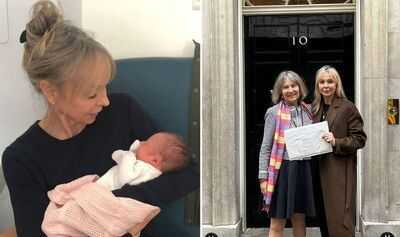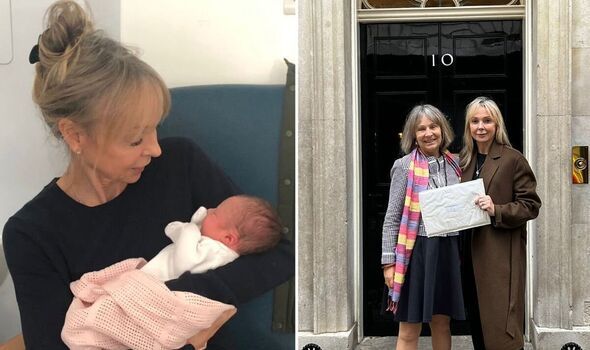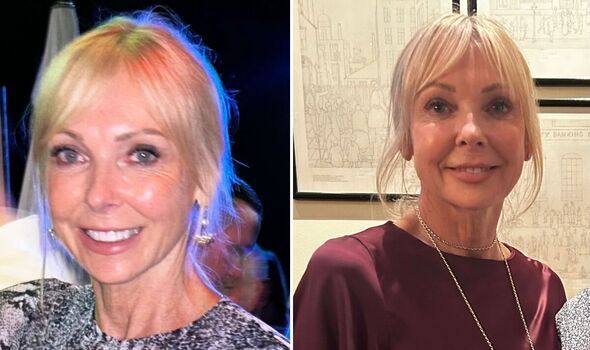

When grandmother Sarah Ramsey-Smith was diagnosed with breast cancer "out of the blue", she expected her consultant to present her with a clear treatment plan. Instead, she says he hung his head and told her this form of the disease was "under-researched and under-funded". Sarah, 62, is one of 22 women per day who are diagnosed with lobular breast cancer - a type that often grows more like a spider's web than a lump and can be hard to spot on scans.
Despite being discovered 80 years ago, there has been little research into specific treatments. On Tuesday, campaigners will make their case for a £20 million injection of Government funding, which they say is needed for a five-year research project to understand the basic biology of the disease and pave the way for the first targeted treatments.

Mum-of-two Sarah said: "When you sit in a room and a breast consultant puts his head down and refers to it as 'terribly under-researched and under-funded', that's a really scary place to be.
"You expect them to say, 'This is the right treatment for you'. I very quickly realised it was a generic treatment."
Ductal is the most common type of breast cancer and originates in the milk ducts, while lobular begins in the milk-producing glands.
Lobular accounts for 15% of all breast cancers and is thought to affect around 8,250 women newly diagnosed each year. Sarah had a 3.7cm tumour which later grew to 5cm. She underwent a mastectomy, followed by radiotherapy.
Hormone-blocking drugs are keeping the cancer at bay and she has annual MRI scans to check for any signs of recurrence. Lobular breast cancers have a higher chance of returning many years later than other types.
Professor Rob Clarke, of the Manchester Breast Centre, is an expert in breast biology who is ready to lead a five-year research programme.
He said it was recently discovered that lobular breast cancer is genetically different to other types and may be driven by a mutation in a gene which codes for a protein called E-cadherin.
This breakthrough means it is the right time to conduct the basic biology research needed to identify specific treatment targets, Prof Clarke said. This would include studying patient-derived cancer cells in a lab and observing how they interact with the microenvironment.
Prof Clarke explained: "Although you can treat lobular breast cancer quite well, it has this peculiarity that it comes back quite late 10 to 20 years after the original surgery. That makes it pretty devastating for those patients - they think they're cured and then it comes back.
"We hope we can discover a vulnerability that is very specific to lobular and develop a specific treatment."
The Manchester Breast Centre consists of around 40 scientists and clinicians, who would work on the project alongside top cancer experts from across Europe.
Prof Clarke said the similar discovery of the HER2 mutation, which can drive the growth of both lobular and ductal cancers, had led to an explosion of targeted treatments.
He added: "Those HER2 breast cancers have gone from being the worst breast cancers to being the ones you can treat very well because there's a specific drug.
"The idea here is to do something similar in lobular breast cancer - study why the loss of this E-cadherin makes it very different, and see whether there's a specific, effective treatment we can produce."
Sarah is among campaigners who are due to hold a 22-minute silent vigil at the entrance to Downing Street from 3pm on Tuesday, representing the 22 women diagnosed daily.
Her story is also told in a documentary, "Our Journey with Lobular Breast Cancer", which will be screened at the 33rd Raindance Film Festival in London on Tuesday.
The Lobular Moon Shot Project has already been backed by more than 340 MPs, including Tory former health secretary Victoria Atkins. She said last year that her Government had allocated the £20m as part of her Women's Health Strategy before losing the election.
Last week, Health Secretary Wes Streeting confirmed that he would meet with the "amazing" campaigners and thanked them for their efforts.
Sarah, of Felsted in Essex, said: "If the research is done now and the biology of lobular is understood, treatments can go into trials so they can pinpoint how it needs to be treated.
"Then if it does metastasise somewhere, for me or anyone else, then they will better understand why and how, and what's the right way of treating that.
"At the moment, if that were to happen, there is a whole plethora of treatments but none of them are specific to lobular. We don't understand the biology enough to know how to treat it effectively and hopefully prevent it going anywhere else."
Sarah added: "I have a granddaughter. I don't want her to be sitting in a room in the future being told this news. I hope that the funding is there so we can do the research."
Dr Simon Vincent, chief scientific officer at Breast Cancer Now, said his charity had funded research projects worth almost £2.5 million looking specifically at lobular breast cancer, "in recognition of the need to build further understanding of this form of the disease and how best to diagnose and treat it".
He added: "We warmly welcome the Lobular Moonshot campaign's passion and determination to highlight the challenges of diagnosing and treating this type of breast cancer, and to fund research to help more women survive the disease.
"Anyone affected by breast cancer can speak to Breast Cancer Now's expert nurses by calling our free, confidential helpline on 0808 800 6000 for information and support."
-
Full list of airlines including British Airways cancelling flights to Doha and Dubai

-
Food Safety Officer Recruitment-2025: MPPSC Issues Fresh Notification; Posts Reduced To 67

-
Power Outage During NEET-UG, High Court Reserves Verdict On Re-Exam Plea

-
Madhya Pradesh: Woman Arrested For Murdering Husband In Balaghat

-
Potentially life-threatening heat wave strikes East Coast with three-digit temps
